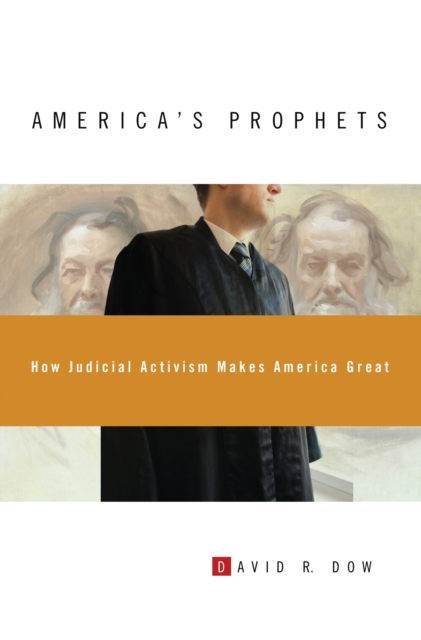
America's Prophets : How Judicial Activism Makes America Great PDF
by Dow David R. Dow
Description
America's Prophets: How Judicial Activism Makes America Great fills a major void in the popular literature by providing a thorough definition and historical account of judicial activism and by arguing that it is a method of prophetic adjudication which is essential to preserving American values. Dow confounds the allegation of the Christian right that judicial activism is legally and morally unsound by tracing the roots of American judicial activism to the methods of legal and moral interpretation developed by the prophets of the Hebrew Bible. He claims that Isaiah, Amos, and Jesus are archetypal activist judges and, conversely, that modern activist judges are America's prophets. Dow argues that judicial restraint is a priestly method of adjudication and that it, not judicial activism, is the legally and morally unsound method.
Race and gender discrimination, separation of church and state, privacy rights, and same-sex marriage are all issues that have divided our nation and required judicial intervention. Every time the courts address a hot-button issue and strike down entrenched bias or bigotry, critics accuse the justices of being judicial activists, whose decisions promote their personal biases and flout constitutional principles. This term, despite its widespread currency as a pejorative, has never been rigorously defined. Critics of judicial activism properly point out that when judges overturn laws that enforce popular norms they thwart the will of the majority. But Dow argues that so-called activist judges uphold two other American legal values that are as deeply embedded in American legal culture as majoritarianism: liberty and equality. He challenges the notion that judicial activism is unprincipled, and he provides a vocabulary and historical context for defending progressive decisions.
Information
-
Download - Immediately Available
- Format:PDF
- Pages:184 pages
- Publisher:Bloomsbury Publishing (USA)
- Publication Date:30/04/2009
- Category:
- ISBN:9780313377099
Information
-
Download - Immediately Available
- Format:PDF
- Pages:184 pages
- Publisher:Bloomsbury Publishing (USA)
- Publication Date:30/04/2009
- Category:
- ISBN:9780313377099






